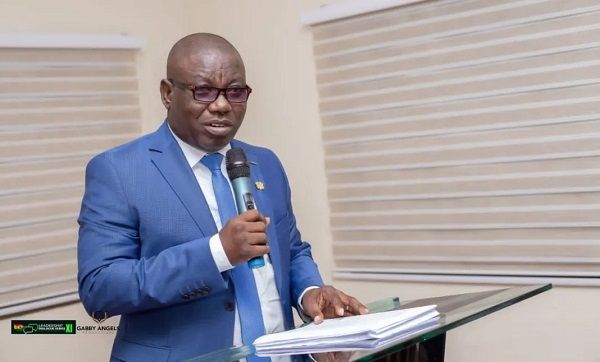Restoring Public Trust: A Cornerstone of Enhanced Tax Compliance in Ghana
The issue of tax compliance in Ghana has become a critical concern, with many citizens expressing reluctance to fulfill their tax obligations. Isaac Adongo, Chairman of Parliament’s Finance Committee, attributes this hesitancy to a pervasive lack of public trust in the government’s handling of public funds. He argues that many Ghanaians perceive the tax system as unfair and are skeptical about the responsible utilization of their tax contributions. This erosion of trust has created a disconnect between the citizenry and the state, hindering efforts to improve tax collection.
Adongo emphasizes the importance of public confidence and trust as fundamental pillars of a well-functioning economy. He contends that when citizens believe they are being taxed equitably and that their contributions are being utilized effectively for the betterment of society, they are more likely to comply with tax laws. Conversely, when doubts arise about the fairness of the tax system or the responsible management of public resources, tax compliance suffers. This principle applies not only to Ghana but resonates across nations, highlighting the universal importance of trust in effective governance.
According to Adongo, the newly elected Mahama-led administration is committed to reversing this trend of declining public trust by prioritizing pro-poor programs and demonstrating a commitment to transparent and accountable governance. He cites specific initiatives, such as the National Apprenticeship Program and the Ghana Medical Care Trust Fund, as evidence of the government’s dedication to utilizing public funds for social welfare and directly benefiting the citizens. These programs aim to address pressing societal needs and provide tangible evidence of the positive impact of tax revenue.
The National Apprenticeship Program aims to empower over 10,000 unemployed youth by providing them with valuable skills and training opportunities. By investing in the future workforce, the government seeks to improve the economic prospects of young people and contribute to long-term economic growth. The Ghana Medical Care Trust Fund focuses on supporting taxpayers struggling with chronic illnesses, providing crucial financial assistance for healthcare expenses. These targeted interventions aim to demonstrate the government’s commitment to using public funds to alleviate the burdens faced by vulnerable segments of the population.
Adongo highlights a "paradigm shift" in the government’s approach to fiscal policy, emphasizing a commitment to redistributive policies aimed at benefiting the poor. He explains that the current budget reflects a deliberate decision to increase taxes on the wealthy to fund programs that directly uplift the less privileged. This approach aims to address income inequality and create a more equitable society. By demonstrating a commitment to social justice and investing in programs that directly improve the lives of ordinary citizens, the government hopes to rebuild trust and foster a greater sense of shared responsibility.
The success of this strategy hinges on the government’s ability to effectively communicate its efforts to the public and demonstrate tangible results. Transparency and accountability will be crucial in restoring public confidence and fostering a culture of tax compliance. By ensuring that citizens see a clear link between their tax contributions and the provision of essential services and social programs, the government can strengthen the social contract and promote a more participatory approach to governance. Ultimately, rebuilding public trust is not merely a matter of improving tax collection, but a fundamental aspect of strengthening democracy and building a more just and equitable society.


